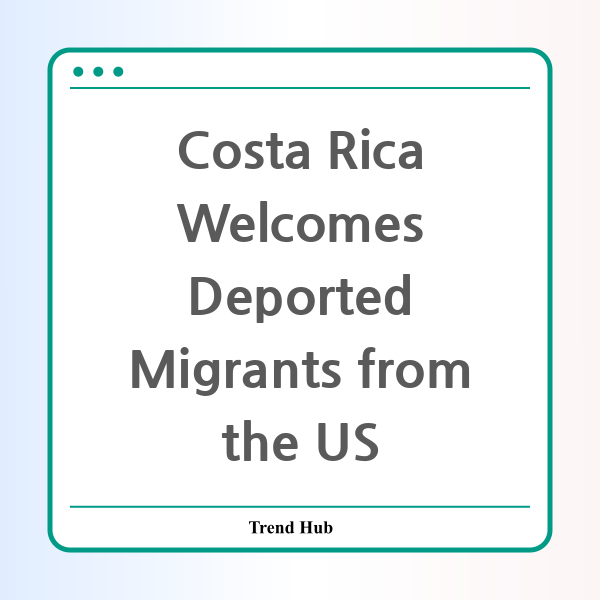* This website participates in the Amazon Affiliate Program and earns from qualifying purchases.

Will Costa Rica become a new hub for deported migrants? Recently, Costa Rica has agreed to receive 200 migrants deported from the United States, marking a significant development in international cooperation regarding migration issues in Central America. This decision highlights Costa Rica’s proactive stance in managing the complex realities of immigration while ensuring the humane treatment of those affected.
Under the new agreement, these migrants, many of whom are from Central Asia and India, are set to arrive in Costa Rica aboard a commercial flight. Upon arrival, they will be accommodated at a Temporary Migrant Care Center located near the border with Panama, where they will receive immediate support and assistance as they prepare for their return to their home countries.
The operation to repatriate these individuals is fully funded by the U.S. government and is being overseen by the International Organization for Migration (IOM). This funding model ensures that the process is efficiently managed while minimizing the costs borne by Costa Rica, a country that has long been an advocate for human rights and social assistance for migrants.
Prior to Costa Rica’s agreement, similar arrangements were made by Panama and Guatemala, making Costa Rica the third Central American nation to step forward in this area. With the increasing focus on immigration policy in the United States, the involvement of these Central American nations indicates a regional approach to what has often been a contentious issue.
Many of the migrants coming to Costa Rica have faced treacherous conditions on their journey to the U.S., risking their lives to escape dire circumstances in their home countries. As Costa Rica prepares to welcome these individuals, it emphasizes the need for compassion and support systems that facilitate their reintegration into society.
The Costa Rican government has stated that the migrant population will be processed upon arrival, ensuring that they receive adequate support and assistance tailored to their needs. This approach is crucial, especially given the diverse backgrounds of the deported individuals and the unique challenges they face upon returning to their countries of origin.
As discussions around immigration policies continue, particularly in the context of the current U.S. administration's stance on immigration, Costa Rica is positioning itself as a model for effective migration management. By taking proactive measures to assist deported migrants, it underscores the importance of humane immigration policies that prioritize human dignity and the welfare of individuals.
In conclusion, Costa Rica's decision to receive deported migrants from the United States signals a significant step in the ongoing conversation about immigration in Central America. As migrant flows continue to change due to economic and political pressures, Costa Rica’s efforts are a reminder of the human stories behind the statistics. The country aims not just to repatriate but to support individuals as they transition back into their former lives, highlighting the need for integrated solutions to complex migration challenges.
* This website participates in the Amazon Affiliate Program and earns from qualifying purchases.